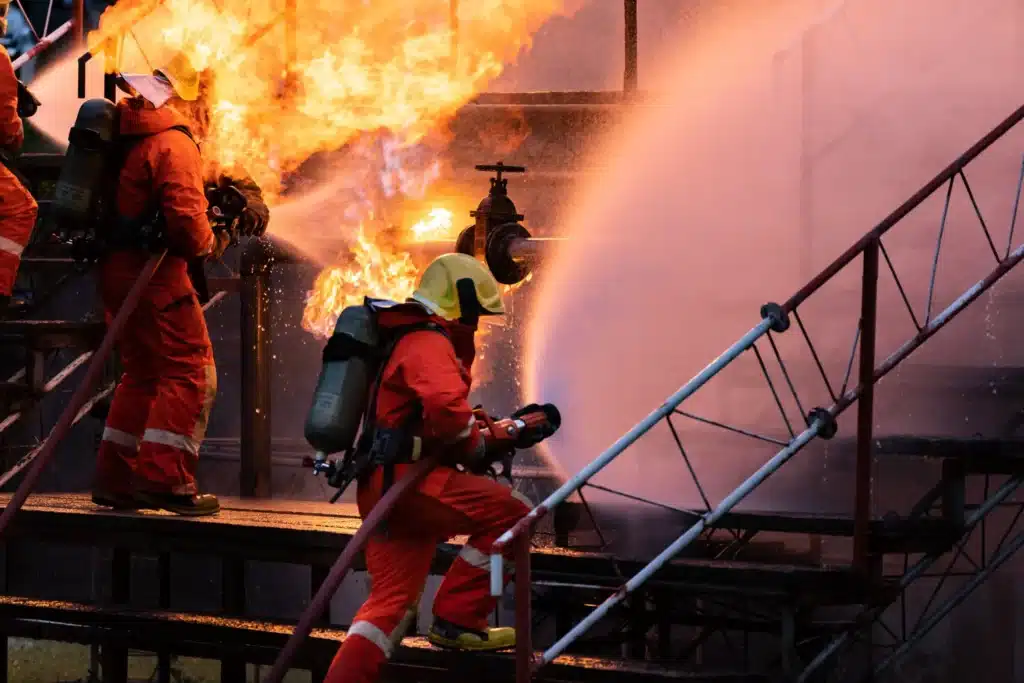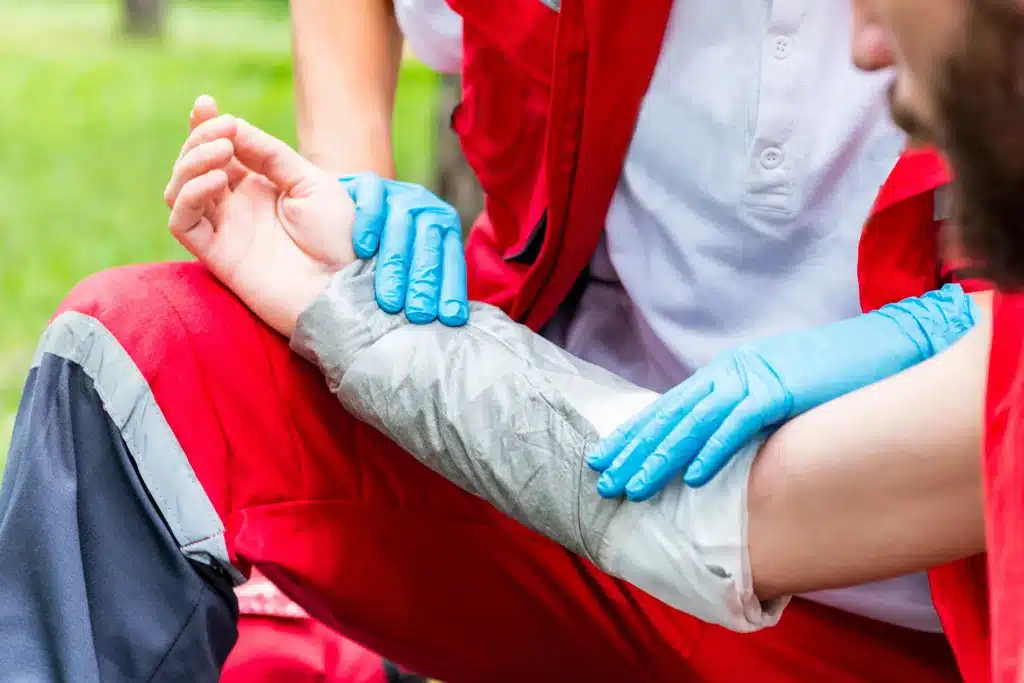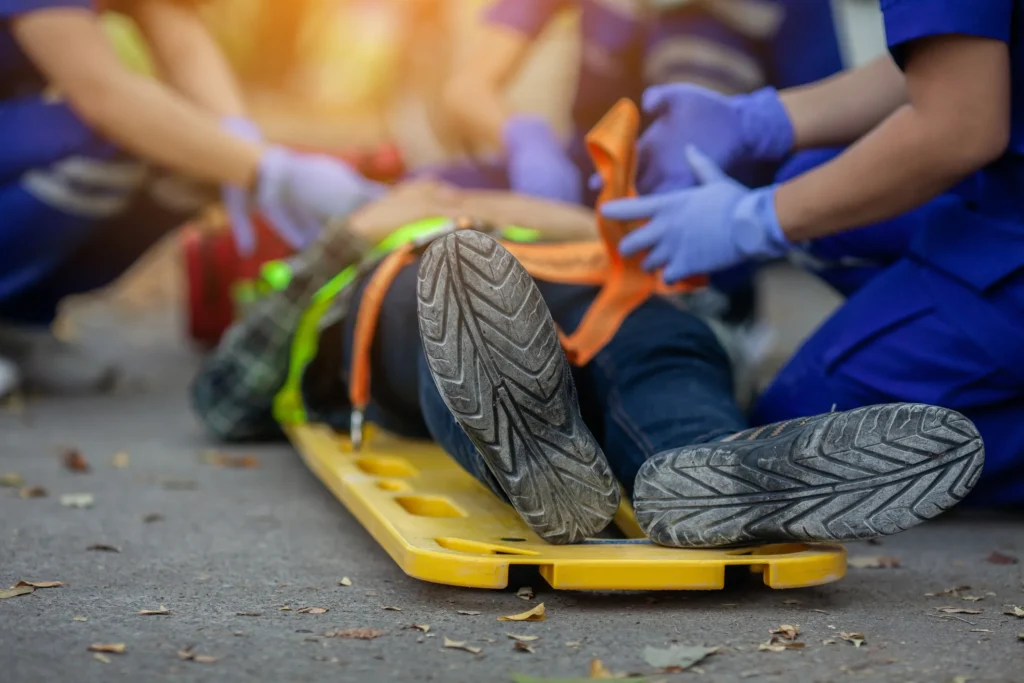 When the unpredictable nature of the oil and gas industry leads to oil fields or well fires, the results can be devastating. These incidents often cause serious injuries, significant property damage, and even loss of life. An oil field or well fire occurs during drilling or oil extraction, fueled by the volatile nature of crude oil and gas. For example, a well blowout can quickly ignite a fire, putting workers and the environment at risk.
When the unpredictable nature of the oil and gas industry leads to oil fields or well fires, the results can be devastating. These incidents often cause serious injuries, significant property damage, and even loss of life. An oil field or well fire occurs during drilling or oil extraction, fueled by the volatile nature of crude oil and gas. For example, a well blowout can quickly ignite a fire, putting workers and the environment at risk.
If you or a loved one has been affected by an oil field accident in Carlsbad, it’s crucial to have a dedicated legal professional who understands the industry and can defend your rights. Cesar Ornelas Injury Law is here to assist you with your case. Our experienced team is committed to securing the compensation you deserve, whether through a personal injury lawsuit or a workers’ compensation claim. We offer free consultations to discuss your situation and explore your options. Don’t wait—call us today at 210-957-2103 to start your journey toward justice and recovery.
Understanding Oil Field and Well Fires in Carlsbad
Oilfield workers face many dangers every day. They deal with challenges like exposure to volatile chemicals, working under high pressure, and the constant threat of blowouts, which can cause serious injuries or even death. The use of heavy machinery and the high stakes of drilling operations increase these risks.
Oil field and well fires are different from other industrial accidents because of the unique risks they involve. Unlike typical industrial accidents, which might involve machinery breakdowns or chemical leaks, oil field fires are driven by the highly flammable nature of crude oil and gas. This makes them extremely dangerous and hard to control.
To reduce these dangers, strict safety rules are necessary. This means regularly maintaining equipment, properly training workers, and following safety regulations. Companies in the oil and gas industry must put their employees’ safety first to prevent oil field accidents.
Sadly, poor safety practices can lead to serious accidents and deaths. When oilfield companies ignore safety procedures, they put their workers in great danger. This negligence isn’t just a failure to follow rules but also a betrayal of trust, leading to tragic outcomes for those involved.
Common Causes of Oil Field and Well Fires
Oil field and well fires can start due to various factors related to the oil and gas industry. Knowing these causes is key to improving safety and preventing future incidents. Here’s a simple list of common causes:
- Equipment Failure: Defective or poorly maintained heavy machinery can malfunction, leading to sparks or leaks that ignite fires.
- Human Error: Mistakes made by workers, such as improper handling of equipment or failure to adhere to safety protocols, can result in fires.
- Volatile Materials: The presence of crude oil and gas, which are highly flammable, increases the risk of fires, especially during leaks or spills.
- Inadequate Training: Insufficient training of oilfield workers can lead to mishandling of hazardous materials, raising the likelihood of accidents.
- Environmental Conditions: Extreme weather conditions, such as high winds or lightning, can destabilize equipment and increase the risk of well-blowouts.
- Negligence in Safety Protocols: Failure to implement or follow strict safety procedures by oilfield companies can lead to preventable accidents.
- Chemical Reactions: Certain chemicals used in drilling operations can react violently, causing fires if not properly managed.
By identifying these common causes, oilfield companies can take proactive steps to enhance safety and protect their workers from potential disasters.
Common Injuries from Oil Field and Well Fires
 The injuries that occur in oilfield accidents can have a profound impact on one’s life. Burn injuries are quite common and can range from minor to severe, causing significant tissue damage and requiring long recovery times. Given that oil rigs are highly flammable environments, severe burns are a frequent and serious issue. An oil rig accident can greatly increase these risks.
The injuries that occur in oilfield accidents can have a profound impact on one’s life. Burn injuries are quite common and can range from minor to severe, causing significant tissue damage and requiring long recovery times. Given that oil rigs are highly flammable environments, severe burns are a frequent and serious issue. An oil rig accident can greatly increase these risks.
Traumatic brain injuries often result from oil rig accidents as well. These can happen due to impacts or violent shaking and may not show symptoms immediately. Likewise, spinal cord injuries can lead to severe and life-changing injuries, including paralysis. The extent of recovery often depends on the severity of the injury and the effectiveness of rehabilitation. The physical impact of these injuries is substantial, but the emotional and financial burdens can be equally overwhelming.
The effects on injured oilfield workers go beyond just physical pain. Severe injuries can cause emotional distress and financial difficulties, impacting not only the injured individuals but also their families. Challenges such as lost income, rising medical bills, and the need for long-term care are just some of the hurdles faced by those affected by oilfield injuries.
Legal Rights of Oilfield Workers After a Fire
After an oil field accident, it’s important to know your rights. In New Mexico, you can file a workers’ compensation claim to get benefits for medical expenses and lost wages without proving your employer was at fault. This system is designed to provide quick financial help, especially for those affected by oil field accidents in New Mexico. However, workers’ compensation doesn’t cover pain and suffering.
That’s where a personal injury claim becomes relevant. While employers aren’t usually responsible for personal injury claims if the accident was their fault, there are exceptions. Injured oilfield workers can sue third parties if someone else caused their injuries. For example, if a subcontractor was negligent, you can file a legal claim against them.
Sadly, some oilfield accidents result in death. In these cases, the family can file wrongful death claims to recover their losses. Cesar Ornelas Injury Law has helped many families with these claims, securing compensation for their devastating losses.
What Workers’ Compensation Benefits Are Available for Oilfield Workers Injured in Fires?
Oilfield workers injured in fires can receive workers’ compensation benefits to help them recover and stay financially stable. These benefits usually include:
- Medical Expenses: Coverage for all necessary medical treatments, including hospital stays, surgeries, medications, and rehabilitation therapies.
- Temporary Disability Benefits: Compensation for lost wages if the injury prevents the worker from performing their job duties temporarily.
- Permanent Disability Benefits: Financial support for workers who suffer long-term or permanent impairments due to their injuries.
- Vocational Rehabilitation: Assistance with retraining or education if the injury requires the worker to change careers.
- Death Benefits: In tragic cases where a worker loses their life, death benefits provide financial support to the deceased worker’s dependents.
Understanding and accessing these benefits is essential for injured oilfield workers. By consulting with a skilled attorney, you can navigate the workers’ compensation system more effectively and ensure you receive the maximum benefits available.
Steps to Take After an Oil Field or Well Fire
 Experiencing an oil field or well fire can be overwhelming, but knowing what to do afterward is important for your safety and legal protection. Here are some key steps to follow:
Experiencing an oil field or well fire can be overwhelming, but knowing what to do afterward is important for your safety and legal protection. Here are some key steps to follow:
- Seek Immediate Medical Attention: Your health is the top priority. Get checked by a medical professional immediately, even if you feel fine, as some injuries may not be apparent right away. Keep detailed records of all medical treatments and expenses.
- Report the Incident: Inform your employer about the accident as soon as possible. Make sure the report is documented in writing for future reference.
- Document Everything: Keep a detailed account of the incident. Include the date, time, location, and circumstances surrounding the fire. Collect contact information from any witnesses who can corroborate your account.
- Preserve Evidence: Safeguard any physical evidence related to the incident. This includes clothing, equipment, and any debris from the scene. Take photographs of the site, your injuries, and any property damage.
- Follow Medical Advice: Adhere strictly to your doctor’s recommendations for treatment and rehabilitation. This not only aids in your recovery but also supports your credibility in any claims.
- Avoid Giving Statements: Refrain from making any statements or signing documents from insurance companies or your employer without consulting a lawyer. These could potentially be used against you.
- Consult an Oil Field Injury Lawyer: They can provide valuable guidance and help you navigate the claims process to seek compensation.
- File a Workers’ Compensation Claim: If applicable, initiate a workers’ compensation claim to cover medical bills and lost wages. Ensure all paperwork is completed accurately and submitted promptly.
- Consider a Personal Injury Lawsuit: If negligence by a third party contributed to the fire, discuss with your lawyer the possibility of filing a lawsuit to seek additional compensation for pain and suffering.
- Stay Informed: Keep yourself updated on the progress of your case and maintain open communication with your lawyer.
By following these steps, you can protect your rights and increase your chances of getting the compensation you deserve after an oil field or well fire.
The Role of Insurance Claims in Oil Field Accident Compensation
Insurance claims are crucial when seeking compensation after an oil field accident. If you’re injured, you can file a claim with your employer’s insurance to get workers’ compensation benefits. These benefits usually cover medical bills, lost wages, and rehab costs, providing vital financial support while you recover.
Sometimes, insurance claims don’t cover all the damages, especially if the accident causes severe injuries or long-term disabilities. In these cases, you might need to file a personal injury claim to get extra compensation for pain, emotional stress, and other damages not covered by workers’ compensation.
Navigating the insurance claims process can be tricky, so it’s wise to consult with an experienced oil field injury lawyer. They can help ensure all paperwork is done correctly and protect your rights. A lawyer can also talk to insurance companies for you to secure fair compensation and, if needed, take further legal action against those responsible.
Understanding how insurance claims and legal options work together is key to getting the most financial recovery after an oil field accident.
What Types of Compensation Can I Receive?
If you’ve been hurt in an oil field fire, filing a personal injury claim can help you get different types of compensation to aid in your recovery and maintain your financial stability. Here are some types of compensation you might qualify for:
- Medical Expenses: Reimbursement for all medical costs related to the injury, including hospital stays, surgeries, medications, and ongoing treatment.
- Lost Wages: Compensation for the income you have lost due to being unable to work while recovering from your injuries.
- Loss of Earning Capacity: If your injuries affect your ability to earn in the future, you can receive compensation for diminished earning potential.
- Pain and Suffering: Financial compensation for the physical pain and emotional distress caused by the accident and its aftermath.
- Emotional Distress: Compensation for psychological impacts such as anxiety, depression, or trauma resulting from the incident.
- Permanent Disability: If your injuries lead to long-term or permanent disabilities, you may receive compensation for the impact on your life quality.
- Rehabilitation and Therapy Costs: Coverage for physical therapy, counseling, or other rehabilitation services necessary for your recovery.
- Loss of Enjoyment of Life: Compensation if your injuries prevent you from enjoying daily activities or hobbies you once loved.
- Punitive Damages: In cases of gross negligence, you might be awarded punitive damages aimed at punishing the responsible party and deterring similar conduct.
Getting these compensations can be tricky, so it’s important to have a knowledgeable lawyer by your side. They can help you navigate the process and work towards securing the best outcome for your case.
The Importance of Legal Representation in Oil Field Accidents
 Dealing with the aftermath of an oil field accident can be overwhelming for victims and their families. Having a lawyer on your side is essential to help you navigate the legal process and protect your rights. A seasoned oil field injury lawyer can assist in building a strong case, negotiating with insurance companies, and ensuring you receive fair compensation for medical bills, lost income, and other damages.
Dealing with the aftermath of an oil field accident can be overwhelming for victims and their families. Having a lawyer on your side is essential to help you navigate the legal process and protect your rights. A seasoned oil field injury lawyer can assist in building a strong case, negotiating with insurance companies, and ensuring you receive fair compensation for medical bills, lost income, and other damages.
Legal help is especially important in cases involving serious injuries or wrongful death claims, where proving fault can be challenging. A knowledgeable attorney will investigate the incident thoroughly, gather important evidence, and work with professionals in the field to strengthen your case. They understand the specific laws and rules related to the oil and gas industry, which can be crucial in winning your case.
With a dedicated lawyer handling the legal details, you can concentrate on healing and recovery. This support not only boosts your chances of getting the compensation you deserve but also offers peace of mind during a tough time
How Cesar Ornelas Injury Law Can Help You
Cesar Ornelas Injury Law is committed to helping oilfield accident victims in Carlsbad. Our team knows the oil and gas industry well and takes a personal approach to every case, ensuring each client gets the attention and care they need. We focus on conducting thorough investigations and working with industry experts to build strong cases for our clients.
We understand the challenges involved in oilfield accident claims and work hard to navigate the legal system to secure the best possible compensation for our clients. Our caring approach means we are here to support you through every step of the process.
Choose Cesar Ornelas Injury Law for a dedicated team that will fight for your rights. Contact us today for a free consultation and take the first step toward justice and recovery. Call us at 210-957-2103.








